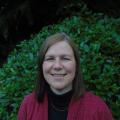
IT’S National Hate Crime Awareness Week between October 14 to 21 when we can focus on combatting prejudice and stopping hate.
Hate crime is any crime that is motivated by prejudice against someone because of their race, disability, religion, sexual orientation or transgender identity.
Whilst Glasgow is a welcoming city, we need to continue to act in support of a place which is free from hate, harassment and discrimination. We have to recognise that some residents are experiencing harassment and abuse motivated by prejudice.
We know that hate crimes are having a negative impact on the city’s communities. For those affected by such crimes, there can be long-lasting damage to their health and wellbeing.
We can take action to prevent hate crime by increasing awareness around it, preventing it from happening and encouraging the reporting of incidents when they happen.
In Glasgow, we can work together to support people to live in peace and harmony with each other.
During Hate Crime Awareness Week, we can pledge to support people being harassed because of their disability, faith or beliefs, gender identity, race or sexual orientation. We can bring people together to say no to hate crime and make our city’s communities safer for everyone.
It is vital that we recognise the negative impact on residents and communities of online hate crime. We have to work to reduce it and create a safer online environment. There is a need to increase understanding and take action to address the harmful impact of social media and the internet.
If you have experience of or witness any incidents that would be considered as a result of prejudice, you can report it to the police or a third party. For various reasons, people affected may not wish to report crime directly to police officers. For victims and witnesses of hate crime, there are third-party reporting arrangements to help overcome any barriers.
Third-party reporting centres are providing safe and supportive places where residents can discuss an incident or concern. These centres can also assist by reporting an incident to the police on behalf of a victim.
Glasgow has more than 60 third-party reporting centres including housing associations, Victim Support and Glasgow Disability Alliance. There are many voluntary and community groups and businesses working to end hate crime. They are providing advice and support to help people targeted with violence, abuse or harassment.
People who are victims of hate crimes feel alone and fearful. They have experienced attacks for simply being who they are. Hate crimes can severely affect individual victims but also leave entire communities feeling vulnerable and afraid. A hate crime often leads to people in a community discussing race, gender identity or religious intolerance. Victims and the communities affected by hate crime can receive strong messages of solidarity.
We can all work to create better relationships across local neighbourhoods to support safe, welcoming places to live across Glasgow.
You can become an activist for hope, not hate.



Comments & Moderation
Readers’ comments: You are personally liable for the content of any comments you upload to this website, so please act responsibly. We do not pre-moderate or monitor readers’ comments appearing on our websites, but we do post-moderate in response to complaints we receive or otherwise when a potential problem comes to our attention. You can make a complaint by using the ‘report this post’ link . We may then apply our discretion under the user terms to amend or delete comments.
Post moderation is undertaken full-time 9am-6pm on weekdays, and on a part-time basis outwith those hours.
Read the rules hereLast Updated:
Report this comment Cancel